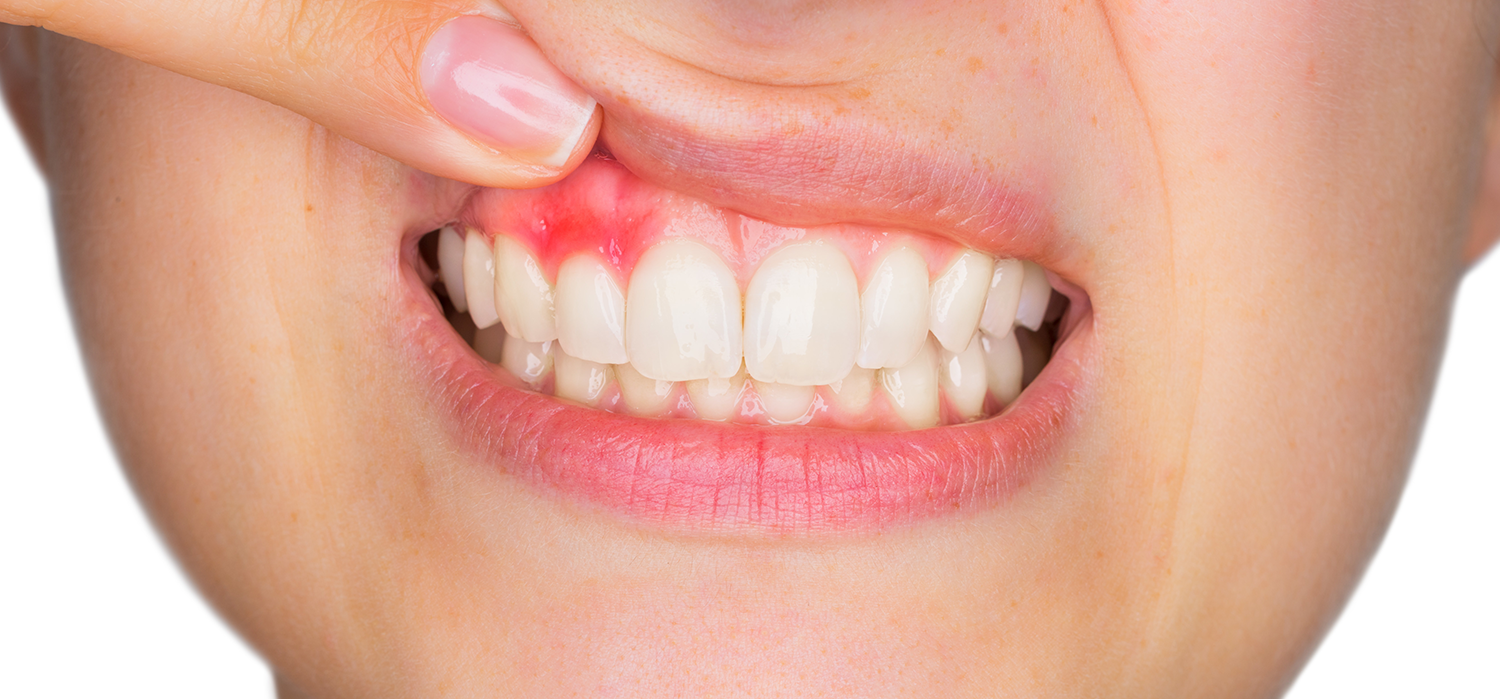The word “Gingivitis” has become one of those cautionary elements of toothpaste and mouthwash commercials, but you may not know exactly what it is and how it can impact your oral health. Gingivitis is a form of gum disease that results in inflamed and bleeding gums. If it is not treated, it can become worse, resulting in tooth decay, serious oral infections, and loose teeth. Thankfully, this gum disease can be diagnosed and treated early in order to keep your mouth healthy.
Understanding Gingivitis
Gingivitis is the earliest form of gum disease. It primarily occurs when people get lazy with their at-home oral hygiene routines and leave plaque on their teeth and gums. This plaque attracts bacteria, and as the bacteria multiply, they cause infections within the gums. In the beginning, these infections are mild and may only result in inflamed, red gums that bleed when you brush or floss. However, you should take any redness and bleeding of your gums very seriously as gingivitis can quickly progress to periodontal disease, loose teeth and tooth loss.
Symptoms of Gingivitis
It is important to be aware of the symptoms of gingivitis. If you think you have gingivitis, you should schedule an appointment with your dentist for an examination, diagnosis, and teeth cleaning.
- Chronic Bad Breath
- Gums That Are Receding
- Gums That Bleed When You Brush
- Having Red Gums
- Inflamed or Swollen Gums
Risk Factors for Developing Gingivitis
Everyone is at risk for developing gingivitis if they do not brush or floss properly. However, there are conditions that can heighten your risk for developing the gum disease.
- Changes in Your Hormone Levels
- Diabetes
- Illnesses that Affect the Immune System
- Low Saliva Production
- Smoking or Using Tobacco Products
- Family History of Gum Disease
Reducing Your Risk for Gingivitis
One of the biggest things you can do to lower your risk for developing gingivitis is to brush and floss your teeth regularly. To brush your teeth correctly, choose a toothbrush with soft or medium stiffness bristles. This will help you avoid damaging your gums by brushing too hard. Next, always choose a toothpaste with the American Dental Association seal of approval. When you brush your teeth, make sure to reach every surface of your teeth as well as your gum line. The process should take two to three minutes, and you should brush your teeth at least twice a day, usually in the morning and before you go to bed for the night. You can also brush after each meal but remember to wait at least 30 minutes after eating before brushing your teeth.
In addition to brushing your teeth, you should also floss at least once a day. Flossing helps remove food particles and plaque between your teeth. If plaque is left on the teeth for an extended period of time, it hardens into tartar, which can lead to gum disease if it is not scraped off by a dentist.
In addition to practicing good oral hygiene, you should have your teeth professionally cleaned by a dentist at least once a year and preferably twice a year, especially if you have other risk factors that increase your odds of developing gingivitis.
Treating Gingivitis with Help from Your Dentist
If you have gingivitis, your dentist can help reverse the process with regular dental cleanings and tips and tricks to help you brush your teeth more effectively. The process of treating gingivitis starts with an examination and x-rays to determine the severity of your gum disease. Next, your dentist will perform a deep cleaning of your teeth. A deep cleaning is slightly different than a routine cleaning as it involves scraping all the plaque and tartar from your teeth, below the gum line and in any pockets that have formed between the teeth and gums. Depending on the severity, your dentist may also use antibiotics on the gums to treat any infections and may recommend a special prescription mouthwash to help reverse the gingivitis. During your treatment, you will also need more frequent cleanings in order to prevent a recurrence. Your dentist can also recommend the right oral hygiene products so that you can clean your teeth more effectively at home.
Triangle Dentistry, located in Raleigh, NC, provides a state-of-the-art facility that offers exceptional general dental and specialty services guided by empathy of a patient’s needs and desires. Services range from dental crowns to veneers and whitening procedures. For further information, questions, or to schedule an appointment, contact the office at (919) 747-3608.
